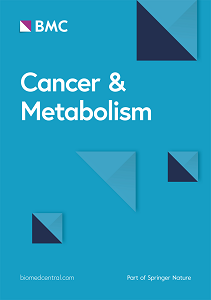与胶质瘤有关的饮食模式:病例对照研究
IF 5.3
3区 医学
Q1 CELL BIOLOGY
引用次数: 0
摘要
虽然已经对个别食物和营养素与胶质瘤的关系进行了调查,但有关主要膳食模式与胶质瘤关系的研究却很少。本研究旨在探讨伊朗成年人主要饮食模式与脑胶质瘤风险之间的关系。在这项基于医院的病例对照设计中,我们从 2009 年至 2011 年在德黑兰招募了 128 例新诊断的胶质瘤病例和 256 例对照。我们使用经过威利特格式验证的 126 项半定量食物频率问卷(FFQ)来评估参与者的饮食摄入量。采用因子分析确定主要饮食模式。通过因子分析,我们确定了三种主要饮食模式:高蛋白饮食模式、素食饮食模式和西式饮食模式。在对潜在的混杂因素进行多次调整后,坚持高蛋白饮食模式与胶质瘤风险成反比(OR:0.47;95% CI:0.23,0.95)。素食也与胶质瘤风险降低有关(OR:0.16;95% CI:0.07,0.34)。更多坚持西方饮食模式与更高的胶质瘤发病几率有关(OR:3.30;95% CI:1.52,7.17)。我们发现,高蛋白、素食和西式膳食模式与胶质瘤风险显著相关。需要进一步的前瞻性研究来证实这些发现。本文章由计算机程序翻译,如有差异,请以英文原文为准。
Dietary patterns in relation to glioma: a case–control study
Although the association of individual foods and nutrients with glioma have been investigated, studies on the association of major dietary patterns and glioma are scarce. The aim of this study was to examine the association between major dietary patterns and risk of glioma in a group of Iranian adults. In this hospital-based case–control design, we recruited 128 newly diagnosed glioma cases and 256 controls in Tehran from 2009 to 2011. A Willett-format-validated 126-item semi-quantitative Food Frequency Questionnaire (FFQ) was used to assess participants' dietary intake. Factor analysis was used to identify major dietary patterns. We identified 3 major dietary patterns using factor analysis: high protein, vegetarian and western dietary pattern. After several adjustments for potential confounders, adherence to the high protein dietary pattern was inversely associated with risk of glioma (OR: 0.47; 95% CI: 0.23, 0.95). Consumption of vegetarian dietary pattern was also associated with a reduced risk of glioma (OR: 0.16; 95% CI: 0.07, 0.34). Greater adherence to the western dietary pattern was associated with a greater chance of glioma (OR: 3.30; 95% CI: 1.52, 7.17). We found that high protein, vegetarian and western dietary pattern were significantly associated with glioma risk. Further prospective studies are needed to confirm these findings.
求助全文
通过发布文献求助,成功后即可免费获取论文全文。
去求助
来源期刊

Cancer & Metabolism
Multiple-
自引率
1.70%
发文量
17
审稿时长
14 weeks
期刊介绍:
Cancer & Metabolism welcomes studies on all aspects of the relationship between cancer and metabolism, including: -Molecular biology and genetics of cancer metabolism -Whole-body metabolism, including diabetes and obesity, in relation to cancer -Metabolomics in relation to cancer; -Metabolism-based imaging -Preclinical and clinical studies of metabolism-related cancer therapies.
 求助内容:
求助内容: 应助结果提醒方式:
应助结果提醒方式:


